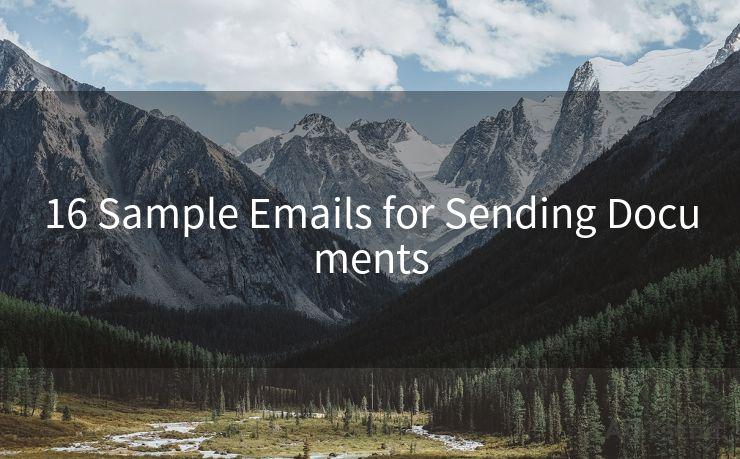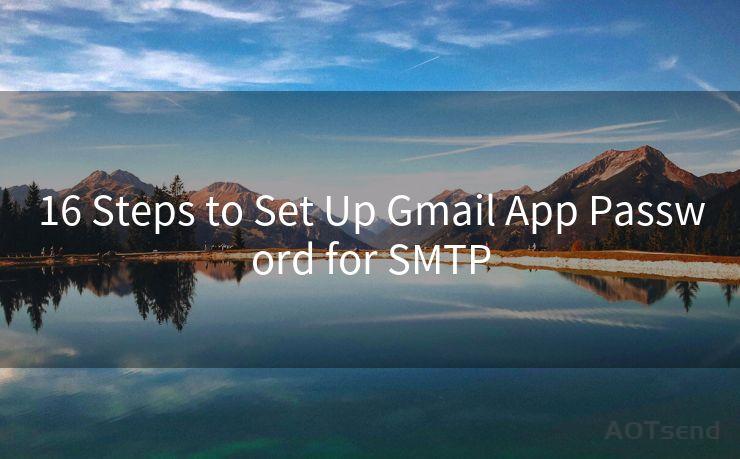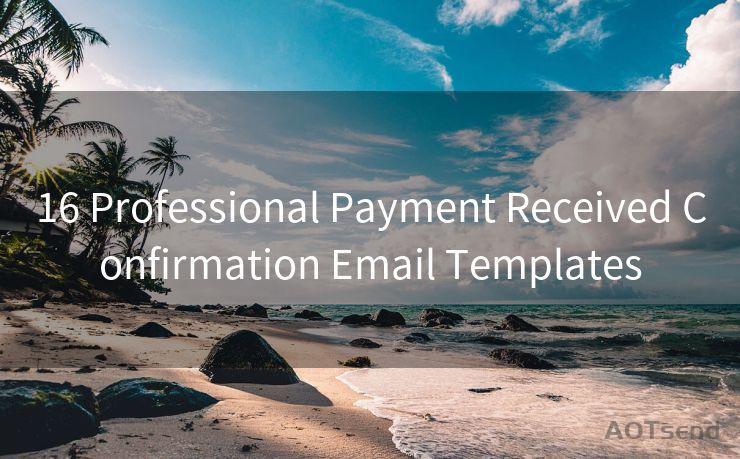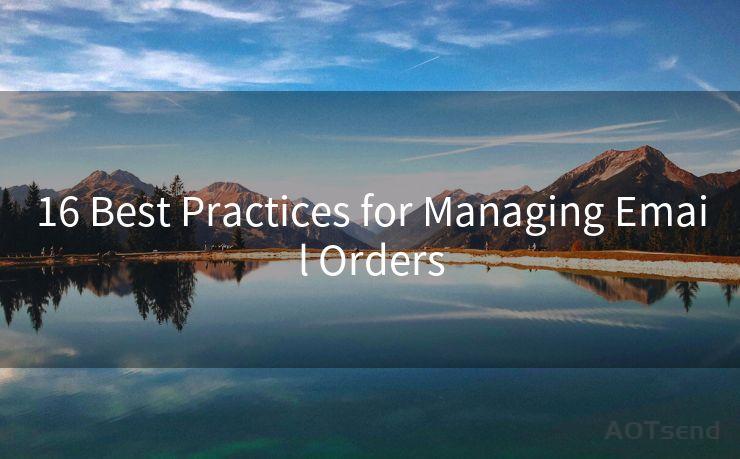18 Email Dkim Dmarc Best Practices




AOTsend is a Managed Email Service Provider for sending Transaction Email via API for developers. 99% Delivery, 98% Inbox rate. $0.28 per 1000 emails. Start for free. Pay as you go. Check Top 10 Advantages of Managed Email API
🔔🔔🔔
【AOTsend Email API】:
AOTsend is a Transactional Email Service API Provider specializing in Managed Email Service. 99% Delivery, 98% Inbox Rate. $0.28 per 1000 Emails.
AOT means Always On Time for email delivery.
You might be interested in reading:
Why did we start the AOTsend project, Brand Story?
What is a Managed Email API, Any Special?
Best 25+ Email Marketing Platforms (Authority,Keywords&Traffic Comparison)
Best 24+ Email Marketing Service (Price, Pros&Cons Comparison)
Email APIs vs SMTP: How they Works, Any Difference?
In the digital age, email remains a critical communication tool for businesses and individuals. However, with the rise of cyber threats, it's essential to ensure your emails are secure. DKIM (DomainKeys Identified Mail) and DMARC (Domain-based Message Authentication, Reporting, and Conformance) are two powerful protocols that enhance email security. In this article, we'll explore the top 18 best practices for implementing DKIM and DMARC to not only secure your emails but also improve your website's SEO through better email deliverability and trustworthiness.
1. Understanding DKIM and DMARC
DKIM and DMARC are email authentication protocols that help verify the sender's identity and the integrity of the email content. DKIM uses cryptographic signatures to validate the email's origin, while DMARC builds on DKIM and SPF (Sender Policy Framework) to specify how receivers should handle unauthenticated emails.
2. Implementing DKIM
To implement DKIM, you need to generate a public-private key pair. The private key is used to sign outgoing emails, while the public key is published in your domain's DNS records. Recipients can use this public key to verify the signature and confirm the email's authenticity.
3. Setting Up DMARC
DMARC requires you to publish a DMARC record in your DNS, specifying the policy for handling unauthenticated emails. This record tells receiving servers how to treat emails that fail DKIM or SPF checks.
4. Aligning DKIM and DMARC with Your SEO Strategy
Improving email deliverability and reducing spam complaints can positively impact your SEO. When emails from your domain are trusted and delivered successfully, it enhances your brand's reputation and can lead to more engagement with your content.
5. Monitoring and Reporting

Regularly monitor your DKIM and DMARC records using tools like DMARC Digests or third-party monitoring services. This helps identify any issues with email authentication and allows you to address them promptly.
6. Handling Failures
If emails fail DKIM or DMARC checks, it's crucial to investigate the cause. Common issues include misconfigured DNS records or problems with the signing process. Fixing these issues can significantly improve email deliverability.
7. Gradually Increasing DMARC Policy Strictness
When implementing DMARC, it's advisable to start with a relaxed policy and gradually increase the strictness level. This approach helps minimize potential delivery issues as you fine-tune your email authentication setup.
8. Educating Your Team
Ensure your team understands the importance of DKIM and DMARC and how they contribute to email security and deliverability. Provide training and resources to help them implement and maintain these protocols effectively.
9. Staying Up to Date with Standards
As email authentication standards evolve, it's essential to stay up to date. Regularly check for updates to DKIM, DMARC, and other related protocols to ensure your implementation remains effective.
10. Leveraging Third-Party Services
Consider using third-party services that specialize in email authentication. These services can help streamline the implementation process and provide additional tools for monitoring and reporting.
11. Testing Your Implementation
Regularly test your DKIM and DMARC implementation using tools like Mail Tester or Email on Acid. These tests can help identify any issues that may affect email deliverability or authenticity.
12. Improving Email Content Quality
While DKIM and DMARC enhance email deliverability, the quality of your email content also plays a crucial role. Ensure your emails are engaging, relevant, and provide value to recipients.
13. Optimizing for Mobile Devices
Most emails are now opened on mobile devices. Ensure your emails are optimized for mobile viewing with responsive designs and easy-to-read content.
14. Measuring Success with Analytics
Use email analytics tools to track key metrics like open rates, click-through rates, and unsubscribe rates. These metrics can help you assess the effectiveness of your email marketing campaigns and identify areas for improvement.
15. Integrating with Other Marketing Channels
Integrate your email marketing efforts with other marketing channels, such as social media and content marketing. This approach helps amplify your message and reach a wider audience.
16. Protecting Your Brand Reputation
By implementing DKIM and DMARC, you're taking proactive steps to protect your brand reputation. These protocols help reduce the risk of email spoofing and phishing attacks, which can damage your brand's image and trustworthiness.
17. Enhancing Customer Trust
Customers are more




AOTsend adopts the decoupled architecture on email service design. Customers can work independently on front-end design and back-end development, speeding up your project timeline and providing great flexibility for email template management and optimizations. Check Top 10 Advantages of Managed Email API. 99% Delivery, 98% Inbox rate. $0.28 per 1000 emails. Start for free. Pay as you go.
Scan the QR code to access on your mobile device.
Copyright notice: This article is published by AotSend. Reproduction requires attribution.
Article Link:https://www.aotsend.com/blog/p4815.html











